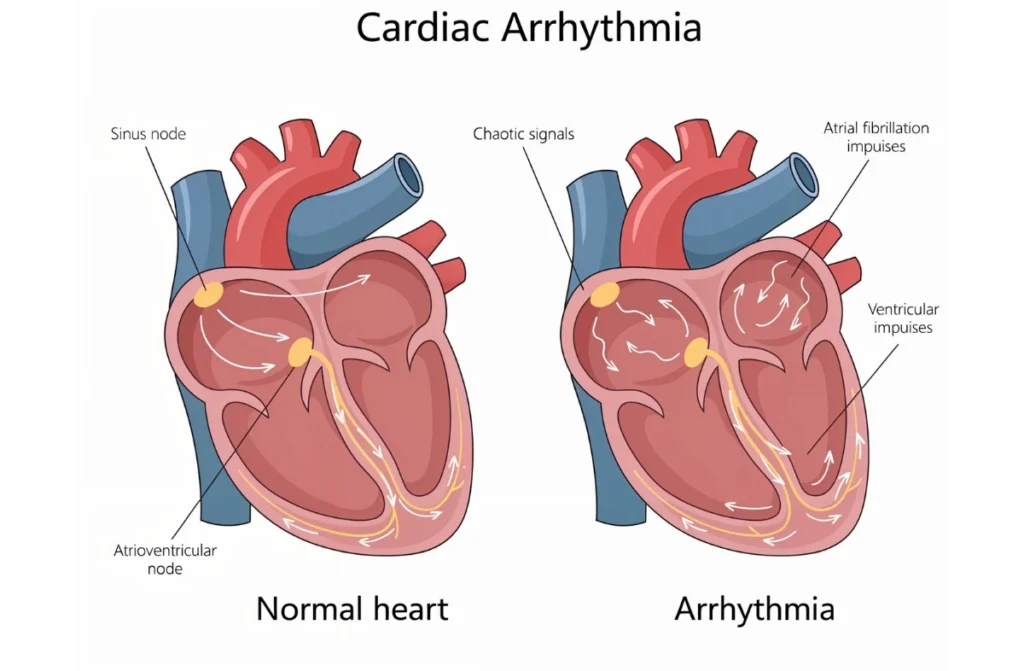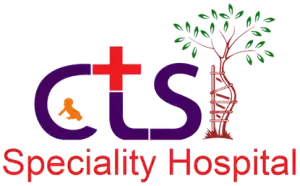When it comes to children’s heart health, addressing arrhythmias—irregular heartbeats—is crucial. These disruptions in heart rhythm can affect a child’s overall well-being, particularly if left unaddressed. At CTS Hospitals, we offer comprehensive pediatric arrhythmia treatment options, from medications to innovative, minimally invasive procedures. These solutions enable young patients to lead healthier, active lives. With early intervention and personalized care, children can achieve better heart function and improved quality of life.

What Are Pediatric Arrhythmias?
Pediatric arrhythmias refer to abnormal heart rhythms that occur in children, causing the heart to beat too quickly, too slowly, or with an irregular pattern. Such irregularities impact blood flow and oxygen distribution, potentially leading to discomfort or even health complications if not treated. Arrhythmias vary in type and severity:
- Tachycardia: A rapid heartbeat that may affect the heart’s pumping ability.
- Bradycardia: A slow heart rate, which can be problematic if linked to underlying issues.
- Premature Atrial Contractions (PACs): Extra beats from the heart’s upper chambers, often harmless but requiring observation.
Early identification and specialized care at CTS Hospitals can significantly reduce risks, enabling children with arrhythmias to thrive.
Prevalence of Arrhythmias in Children
Childhood arrhythmias are more widespread than commonly perceived. These irregular heart rhythms affect numerous children worldwide, spanning mild to severe cases. Early intervention is vital in pediatric arrhythmia care, as untreated arrhythmias can lead to future health issues:
- Frequency: Millions of children are affected by arrhythmias each year, with cases ranging from minor to those needing immediate treatment.
- Spectrum of Cases: Some arrhythmias may only require monitoring, while others benefit from targeted treatments, such as medications or minimally invasive procedures.
Advances in pediatric arrhythmia treatment at CTS Hospitals provide effective solutions, allowing young patients to experience improved health outcomes.
Types of Arrhythmias in Pediatric Patients
Various arrhythmia types affect children differently, and treatment options are customized accordingly at CTS Hospitals. Some common types include:
- Tachycardia: Characterized by a fast heart rate; it may necessitate medication or other interventions.
- Bradycardia: A slower-than-average heart rate, which may require attention if it affects overall health.
- Premature Atrial Contractions (PACs): Extra beats in the heart’s upper chambers, usually monitored rather than treated.
- Premature Ventricular Contractions (PVCs): Extra beats in the lower heart chambers, which may need observation depending on severity.
Understanding the type of arrhythmia helps our team create a targeted treatment approach for each child at CTS Hospitals.
Recognizing Symptoms of Pediatric Arrhythmia
The symptoms of pediatric arrhythmias can vary significantly depending on the condition’s type and severity. Early recognition of these signs is crucial, as untreated arrhythmias can affect a child’s development and energy levels. Parents should be alert to the following:
- Unusual Heart Rate: Either faster or slower than normal.
- Dizziness or Fainting: Sudden spells of lightheadedness could indicate a heart rhythm issue.
- Chest Pain or Discomfort: Persistent discomfort, especially during physical activity.
- Breathing Difficulties: Breathlessness during exertion could be a sign of a heart rhythm disorder.
- Fatigue or Anxiety: Frequent tiredness or anxiety may accompany irregular heart rhythms.
At CTS Hospitals, our specialists provide thorough assessments to determine whether these symptoms warrant further intervention.
Causes of Pediatric Arrhythmias
Arrhythmias in children may have various underlying causes, each influencing the treatment plan. Knowing these factors enables more effective treatment at CTS Hospitals:
- Genetic Predisposition: A family history of arrhythmias or heart conditions can heighten risk.
- Congenital Heart Defects: Structural issues present at birth may interfere with normal heart rhythms.
- Medications: Certain drugs, such as those for asthma or ADHD, can induce arrhythmias.
- Other Conditions: Health issues like viral infections or electrolyte imbalances can disrupt normal heart rhythms.
Understanding these root causes is key in formulating the best treatment approach for pediatric arrhythmias at CTS Hospitals.
Treatment Options for Pediatric Arrhythmias at CTS Hospitals
Beta-Blockers
These medications help regulate the heart’s response to adrenaline, reducing fast heart rates. Beta-blockers offer a reliable way to manage certain arrhythmias in children, supporting consistent heart rhythm control.
Calcium Channel Blockers
Calcium channel blockers relax blood vessels and slow the heart rate, ideal for cases where arrhythmias accompany high blood pressure.
Ablation Therapy
This minimally invasive procedure uses energy, often radiofrequency, to eliminate small areas of abnormal heart tissue responsible for arrhythmias, providing a long-lasting solution.
Cardioversion
Cardioversion uses a controlled electric shock to re-establish a normal heart rhythm. It’s effective in managing rapid arrhythmias and may be considered when medication doesn’t provide sufficient control.
Implantable Devices
For severe cases, devices such as pacemakers or implantable cardioverter-defibrillators (ICDs) regulate the heartbeat. Pacemakers maintain a steady rhythm, while ICDs address sudden severe rhythm changes.
Maze Procedure
In complex cases, maze surgery creates pathways for controlled electrical impulses in the heart, helping maintain a steady rhythm when other treatments aren’t effective.
Conclusion
At CTS Hospitals, our pediatric arrhythmia treatments offer young patients the chance to achieve healthier, stable heart rhythms. From medications to advanced procedures, our team tailors each treatment to meet a child’s specific needs, ensuring the best possible outcomes. With timely care and accurate diagnosis, pediatric arrhythmia treatment at CTS Hospitals helps improve children’s heart health and quality of life. If your child is experiencing symptoms, consulting with our specialists can make a meaningful difference in their journey to wellness.
